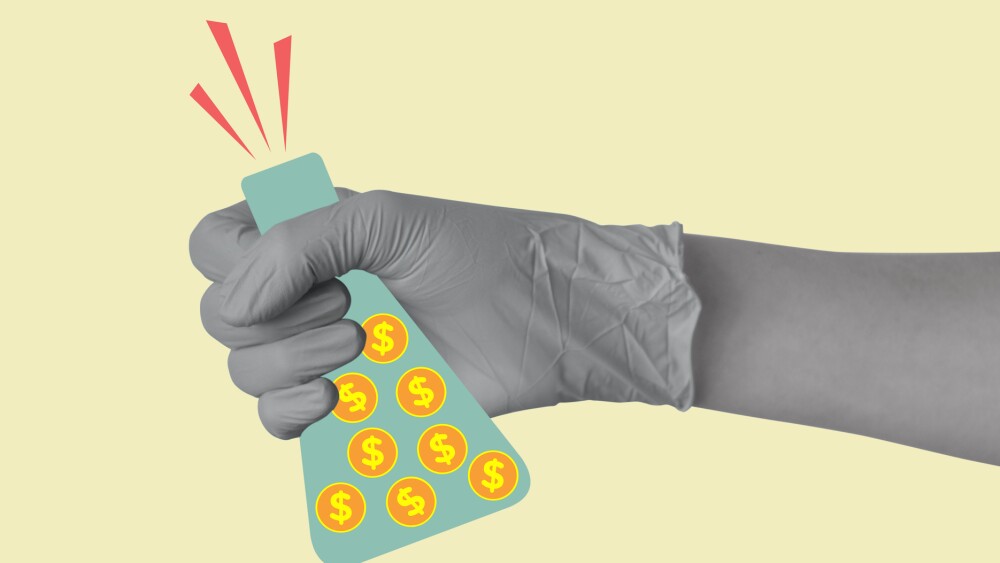Vas Narasimhan confirmed that Novartis is having weekly discussions with the Trump administration on drug pricing, but a deal has not yet been reached.
President Donald Trump’s measures to lower drug prices do not get to the root of the problem, Novartis CEO Vas Narasimhan said on Tuesday. Speaking on the company’s third quarter earnings call, Narasimhan said several key factors are not addressed by the agreements reached by his company’s peers, including pharmacy benefit managers, the 340B drug pricing program and low prices in other nations.
“From an industry wide perspective, I think the pharma industry’s view is that the proposed negotiations or proposed actions are not going to address the underlying issues here,” the CEO said as the company reported third quarter earnings.
Narasimhan confirmed that Novartis is having weekly discussions with the Trump administration “to look at what are the best solutions we can come up with.” The president has been clear on what he wants with four key parameters. While Narasimhan did not name those, a White House fact sheet from July notes implementation of Most Favored Nation drug pricing, direct to consumer marketing, leveraging trade policy to help manufacturers raise prices elsewhere and agreements to ensure manufacturers do not offer better prices elsewhere.
The CEO had been asked whether Novartis would reach a deal similar to peers Pfizer, AstraZeneca and Amgen. The three companies have announced varying plans to offer some of their medicines direct to consumers, either via company programs or on Trump’s proposed TrumpRx platform that’s set to launch in 2026. While Narasimhan declined to speak specifically to those companies’ agreements, he pointed to the three policy points he felt would better address drug pricing. Specific to the prices paid in other nations, Narasimhan said that other G7 countries need to adjust pricing to properly reward innovation.
Several reports have suggested that the U.K. is nearing a deal with the White House to pay more for drugs in an effort to dodge Trump’s ongoing tariff threats. Earlier in October, The Financial Times reported that Trump is preparing a pricing probe against U.S. trading partners that could levy tariffs on countries that do not pay enough for drugs.
Narasimhan said the company will continue working with the Trump administration.
“We’ll have to see in the coming weeks and towards the end of the year, if we can come to a proposed approach that makes sense for all involved,” he said.
Novartis has already committed about $23 billion over five years in the U.S., which is mainly in R&D operating expenses. CFO Harry Kirsch said he does not expect any additional spending beyond what has been announced already.
Welcoming Avidity
Elsewhere, Novartis management spoke to the $12 billion offer to buy Avidity Biosciences, which was announced over the weekend. The deal comes as Novartis is fighting off generic erosion of sales of its heart failure drug Entresto. The drug booked $1.88 billion in the third quarter, enough to be named the top selling drug for the company but growth was flat. Novartis’ total sales were $13.9 billion, representing roughly 8% growth. Generic pressures had a negative impact of about 7 percentage points, the company said in its earnings press release.
To address generic erosion, Novartis’ business development team has been busy. In addition to Avidity, the company snapped up Tourmaline Bio for $1.4 billion in September and signed a string of licensing deals worth billions.
“We remain highly confident in our mid- to long-term growth, which is further bolstered by the proposed acquisition of Avidity, not just through the end of the decade, but into the next decade and beyond,” Narasimhan said on the call.
Avidity brings a clutch of late-stage RNA neuromuscular programs, including candidates for Duchenne muscular dystrophy (DMD), facioscapulohumeral muscular dystrophy (FSHD) and myotonic dystrophy type 1 (DM1). Kirsch said the company will contribute two near-term product launches with multi-billion-dollar market potential that will not have exclusivity into the 2040s. The products should start contributing in 2029, as Phase III trials are currently underway.
Novartis does expect short-term core operating profit margin dilution of about one or two percentage points over the next three years due to the deal. Kirsch called this a “small price to pay” for the longer-term benefits Avidity will bring. He is confident Novartis will return to a 40% profit margin, which was achieved earlier this year.
Kirsch said Novartis’ cash allocation plan remains unchanged, with a focus on investing in its organic business, executing deals and returning capital to shareholders via share buybacks and an annual dividend. The company has been on the hunt for bolt-on deals for the past few quarters.







